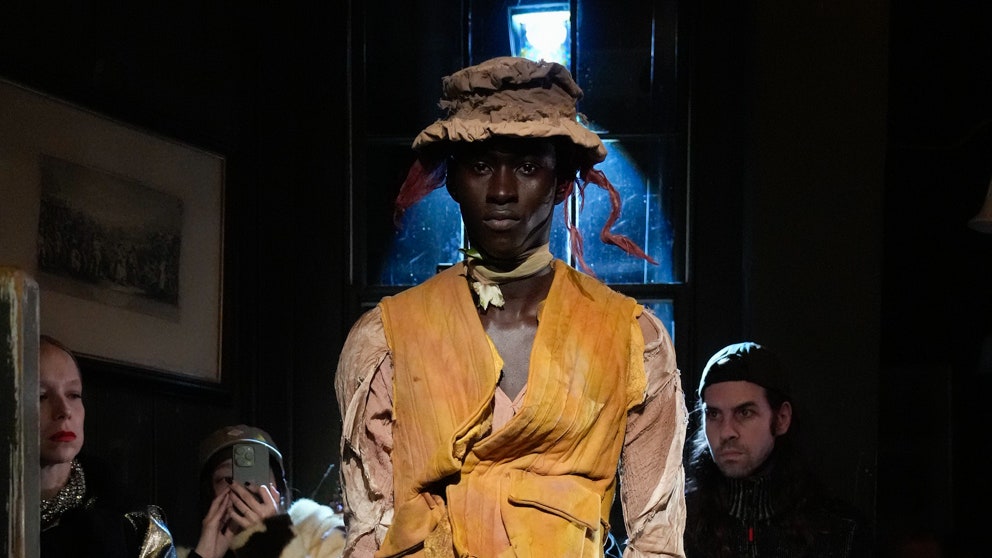The Holy Tavern in Clerkenwell had another layer of its checkered history laid down by Paolo Carzana last night. If anything, this latest manifestation—with its strange name, Dragons Unwinged at the Butchers Block—was even tinier than his last, which he held in his own backyard in September.
Coming near the end of London Fashion Week, this micro-show assumed a significance far greater than its 15-look size. Its radical hand-madeness—seen inches from the audiences’ eyes—wrapped, tied, and layered, apparently with barely the intervention of a sewing machine, provoked a bundle of difficult and contradictory emotions and questions. Was it a poignant and pathetic metaphor for the desperation of young people facing the dystopian state of the world and the collapse of the fashion system as we’ve known it? Or a brave show of resistance, the beauty of making magic from what little you have—being undiscouraged, hopeful?
Well, both, and more. Carzana’s ideas—in common with his Gen Z generation—are entwined in the mythic and spiritual. He explained the title of his collection as a kind of manifesto. “If you think about dragons being sort of the most beautiful, magical, and powerful creature, being at the mercy of humanity and destruction—that we’ve had to destroy even the most magical and beautiful creature,” he began. Dragons, in his mind, seem to symbolize imagination and pride in identity, which may have something to do with the Welsh dragon on his home country’s flag too. “What I’m thinking about is definitely a fight against AI and a feeling that we’re going towards our own self-destruction… everyone using it as a tool, slowly taking away their own thoughts and their own ability,” he said. “So everything I do is all about hand processes. It’s a fight, I guess, to make people aware of what happens if we don’t look after our own intelligence and the creativity of our brains.”
As young, fragile, and poetic as Carzana is, he’s also a prime target for the hard criticism, bordering on exasperated ridicule, that comes from business-minded industry spectators who see work like his as having no right to exist in their scheme of the fashion world. Lee McQueen faced exactly the same establishment disgust—and was also used as an example of the lack of professionalism of London Fashion Week when he started in 1992. One of McQueen’s prime early offenses was telling buyers that he was not selling to them. That was because he was making all his things by hand and couldn’t afford to fund a collection made in a factory, anyway. All he passionately cared about at that stage was showing, and stamping his vision on the zeitgeist.

